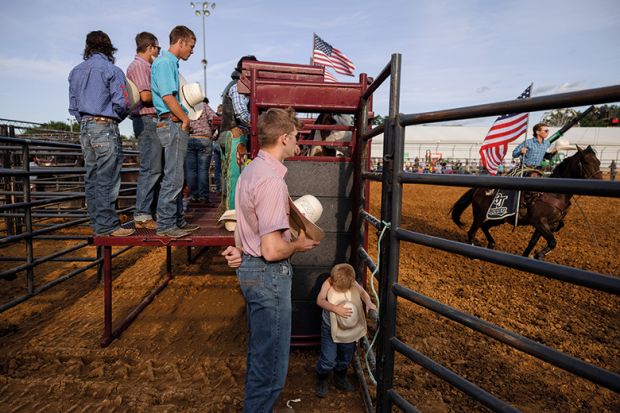Several public universities in the western US are creating a collaborative network designed to attract hard-to-reach students by sharing their resources across a vast rural region that has grown increasingly sceptical of the value of higher education.
The Networked University is being led by the University of Montana, with initial partners set to include major state institutions in states from Arizona to Washington.
The idea shares some similarities with numerous existing multi-institution agreements around the US for integrating faculty, students, courses and credits. It has ambitions, however, to be much larger than the others, more focused on job-oriented training, designed to emphasise physical facilities, and – at a moment of rising political tension between academia and American conservatism – attuned to a region and worldview that has become especially doubtful of the relevance of the post-secondary experience.
According to its founder, Pardis Mahdavi, the provost at Montana, in the Rocky Mountain West where the Networked University will be centred “people are increasingly fed up because higher ed is not meeting the needs of the learners of today”. “There’s this sense of, ‘Is there a place for public higher ed to train students for skills – to skillify your syllabi?’” Dr Mahdavi said.
She cited examples that included a young man she met at an initial presentation on the Networked University who grew up on a ranch in northern Arizona. None of his family had gone to college, and he did not see that as an option for him, either. However, he was interested in learning about more efficient and sustainable ways of ranching. To his excitement, Dr Mahdavi outlined an option where he could take most classes at home in Arizona and learn key parts of his training during summers at specialised outdoor facilities in Montana.
“With the decline in the numbers of people who are going to school, I think that we really need to be more thoughtful about all the folks who haven’t had access to education in the past, and how we can offer opportunities for them,” she said.
Dr Mahdavi plans soon to step down as provost but to remain a faculty member at Montana, in order to free herself up to take on the role of first executive director of the Networked University concept.
The Networked University is not expected to have any of its own faculty or students, at least for now. And much of the work it will do – helping students cobble together educational experiences at multiple universities – is something that students have long been doing on their own, but typically with great logistical difficulty. Dr Mahdavi describes the network’s initial role as similar to that of an air traffic controller, helping to fit together students and institutions more routinely and smoothly in ways that benefit all of them.
Dr Mahdavi is a former dean of social sciences at Arizona State University, whose president, Michael Crow, also has worked to pioneer the use of digital tools in sharing course material between institutions.
The Networked University, though, hopes to plough new ground in sharing physical assets. At the University of Montana, that includes the Lubrecht Experimental Forest, a 21,000-acre outdoor laboratory for student instruction and research into forest management, and the Flathead Lake Biological Station, a century-old retreat with lakeside residences for freshwater research and education.
Without its own engineering school or medical school, however, Montana cannot take full advantage of such unique assets, Dr Mahdavi said. She hopes the Networked University will promote entirely new interdisciplinary opportunities for students and scientists from around the US and the world.
As the daughter of parents who fled Iran in 1978 ahead of the country’s Islamic revolution, who in 2007 was arrested while giving a lecture at the University of Tehran on the topic of the nation’s sexual revolution and held in custody for more than a month, Dr Mahdavi has plenty of insight into political and cultural battles around higher education. But the battle lines in US higher education are not as unbending as they appear to many Americans living in the nation’s more liberal coastal regions, she said. People in the conservative-leaning red states often just want to take advantage of educational and research opportunities that will help them do their jobs, she added, and simply need more help making the necessary connections.
“I think there is something to be said for an initiative like this coming out of the Rocky Mountain West,” she said, “because I think that this is where these conversations can happen.”
It can be difficult to improve cross-institutional cooperation within higher education in ways that make a meaningful difference to students, said Gerardo Blanco, an associate professor of higher education at Boston College.
That’s because obstacles include the range of bureaucracies and staff training systems at various universities, and differences in accreditation systems, Professor Blanco said. He added of the Networked University: “Implementation sounds pretty complicated, but the need seems worthwhile.”
POSTSCRIPT:
Print headline: Universities in western states band together to round up rural learners
Register to continue
Why register?
- Registration is free and only takes a moment
- Once registered, you can read 3 articles a month
- Sign up for our newsletter
Subscribe
Or subscribe for unlimited access to:
- Unlimited access to news, views, insights & reviews
- Digital editions
- Digital access to THE’s university and college rankings analysis
Already registered or a current subscriber? Login









